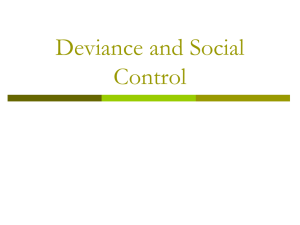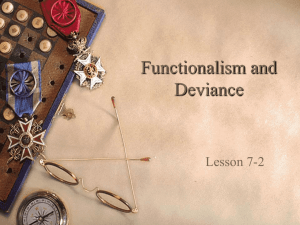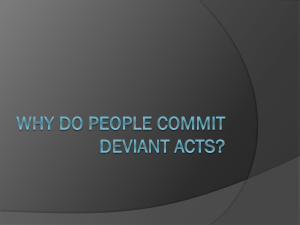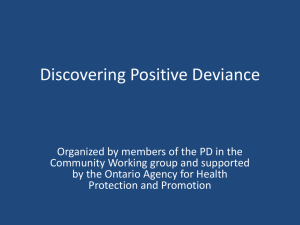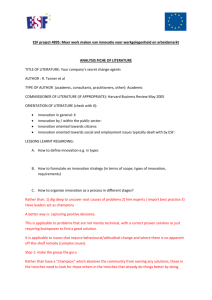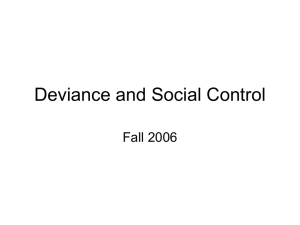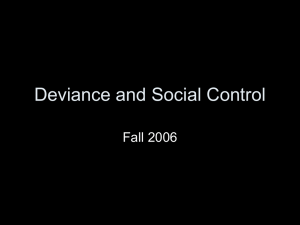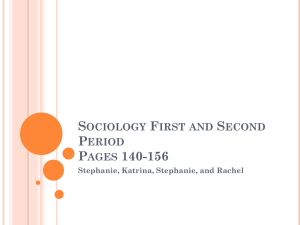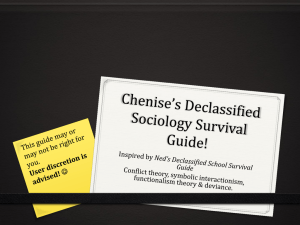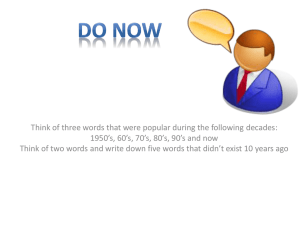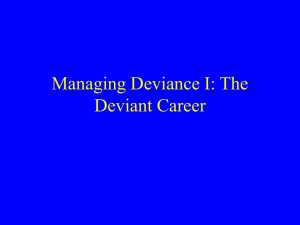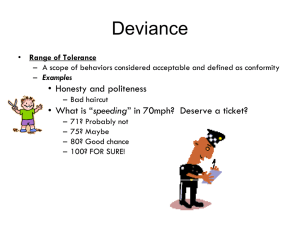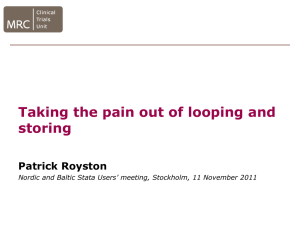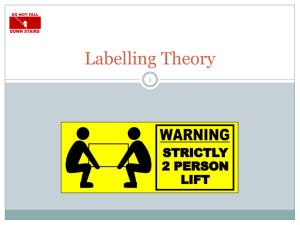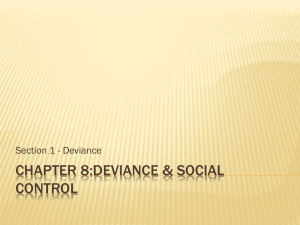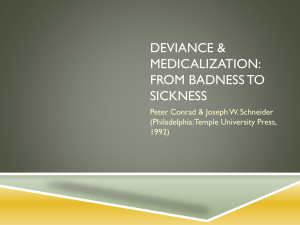Deviance & Social Control
advertisement
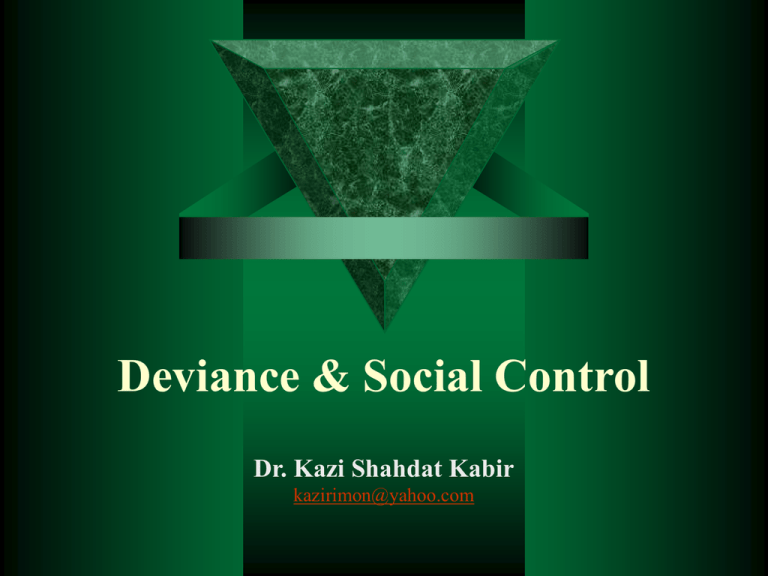
Deviance & Social Control Dr. Kazi Shahdat Kabir kazirimon@yahoo.com Deviance deviance is violation of social control. It occurs when someone beaches a society’s or group’s norms and values. Behavior which is unconventional or atypical is not necessarily deviant. eg. vegetarian Deviance Deviance involves the violation of group norms, which may or may not be formalized into law. It is a comprehensive concept that includes not only criminalized behavior but also many action not subject to prosecution. Deviance Standards of deviance vary from one group to another. eg. Islam prohibits drinking even mildly alcoholic beverages. In contrast Judaism and Christianity incorporate wine into their religious rituals. Deviance & Social Control Social control refers to any and all efforts to prevent and /or correct deviant behavior. The most powerful instrument of social control is socialization. However, socialization is never perfect, however, social control also operates to enforce society's standard of living. Deviance & Social Control Persons (1951) discussed three tools of social control. Isolation: is designed to keep the deviant away from their people and does not include any attempt at rehabilitation. This is the way prisons deal with many “hardened” criminals. Deviance & Social Control Insulation: restricts deviant’s contact with others but does not completely remove him or her from society. It allows deviants to return voluntarily when they are ready to meet society's norms. Placing person in a mental hospital for a limited time would fall into this category. Deviance & Social Control Rehabilitation: Through Rehabilitation deviant may be prepared to resume their roles in a society. Many prisons have rehabilitation programs and groups such as Alcoholics Anonymous rehabilitate noncriminal deviants. Deviance & Social Control These methods of social control can be both informal and formal. Informal controls are “unofficial” and tend to occur in small groups. Formal controls are “official” and usually involve large organizations such as police departments. Deviance & Social Control Crosbie (1975) has listed four basic types of informal control. Social rewards: which include smiles, nods of approval and more tangible acts such as promoting an employee, reward conformity and indirectly discourage deviance. Deviance & Social Control Punishment: which includes frowns, criticism and even physical threats, is aimed directly at deviant acts and its intended to stop them. Persuasion: is another way of bringing deviants into line. A basketball player who breaks training may be persuaded by coach to shape up. Deviance & Social Control Redefine norms: a more complicated kind of social control is to redefine norms so that what used to be considered deviant behavior is no longer considered as such. For instance, for a husband to stay home, do the housework and care for the children while his wife went to work. Deviance & Social Control The agents of formal social control are the organizations and rules that enforce conformity. Police departments and other law enforcement agencies, courts and mental hospitals are organization of this kind. Deviance & Social Control The police: The first step in this process usually consists of an encounter between a police officer and someone who is suspected of breaking a law. The legal process itself begins with an ‘arrest.’ It is fairly well established that the offender’s age, race, social class and sex- as well as how he or she behaves- affect police decisions to arrest or not to arrest. Deviance & Social Control The Court: After being arrested, offenders enter the court system for the next step of their processing. Many cases are settled out of court and many others are settled through a process of negotiation. Prisons: The usual penalty for commission (and conviction) of a crime is a prison sentence. Deviance & Social Control They become part of new social system with its own statuses and roles. Conclusion: The three stages that have been discussed- police, courts and prisons- share an important feature. All the best Thank you
